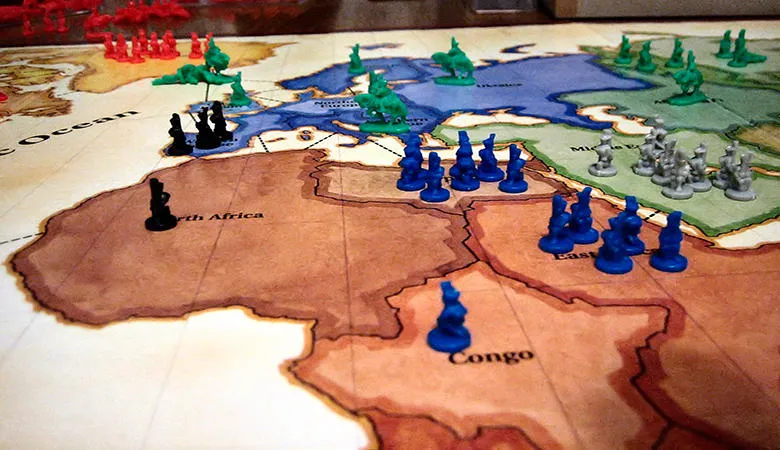13 September 2018
Wargaming marches towards the mainstream
Wargaming experts and enthusiasts converged on King’s College London last week for the Connections UK annual summit, as the field edges into the mainstream of academic military studies and wider professional practice.

Wargaming experts and enthusiasts converged on King’s College London last week for the Connections UK annual summit, as the field edges into the mainstream of academic military studies and wider professional practice.
“A wargame is a simulation of conflict without the actual use of force,” explained Phil Sabin, Professor of Strategic Studies in the Department of War Studies, speaking before the conference. “The hope is therefore you can understand it better and thereby prevent spill of real blood.”
The Connections UK conference, 4-6 September, brought together the various strands of the wargaming community including academics, gamers, designers and military professionals. This includes a ‘megagame’, a large-scale simulation of a military conflict held within the King’s College London Strand campus.
Although wargaming suffers from the stigma of the ‘gaming’ tag and viewed with scepticism by some areas of academia Professor Sabin argues that their immersive and interactive nature can in fact promote much better understanding of the dynamics of conflict.
“There is a paradoxical logic about war that only really applies to contested situations like war.” Wargaming capture distinctive features of war without war itself and can also facilitate a more rounded perspective on historical conflicts, putting oneself in the shoes of an enemy force.
This can help mitigate jingoistic attitudes to historical conflicts, particularly ones won by your own country. “Wargaming levels the playing field and forces you to put yourself in both camps.”
The multifaceted wider benefits of wargaming were emphasised by Volko Ruhnke, a former adviser to the CIA and other US intelligence agencies and keynote speaker at Connections UK. He explained that “the kind of thinking that goes into developing effective wargames and models is useful to the analysis of any real-world situation”.
Wargames help model complexity – the dynamics of various interactions which can add up to something new and unexpected- and are now deployed in various settings including business.
More information at the Connections UK website
A full podcast on the Connections UK conference including the full interview with Professor Philip Sabin, will be available shortly from the War Studies Soundcloud channel.
